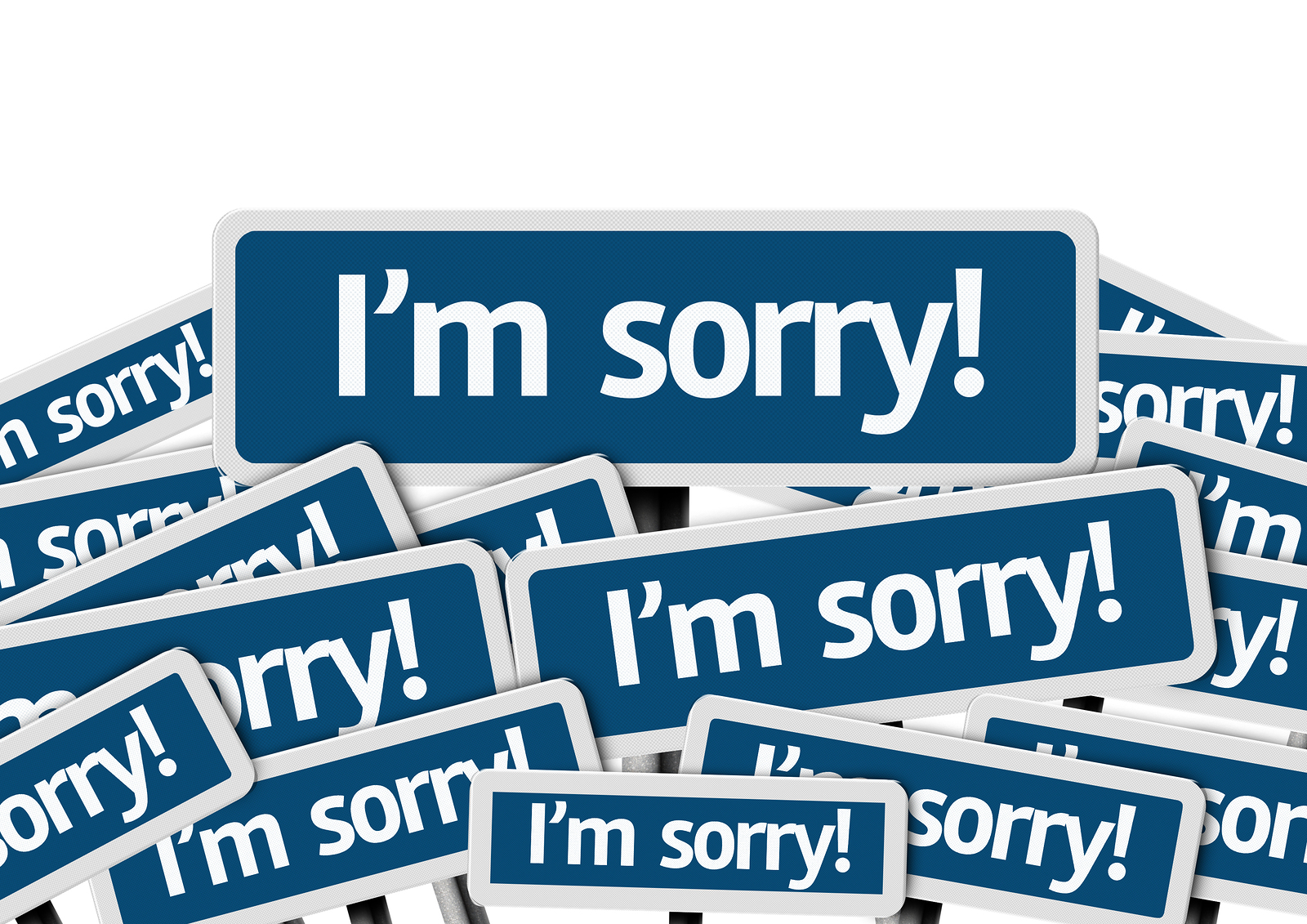We have all said it and heard it: “I’m Sorry.”
But is this common statement enough? Is saying, “I’m sorry” a real apology?
Does it truly resolve conflict and foster healthy relationships?
I often ask in premarital counseling why it isn’t enough to say: “I’m sorry.” Most people have never even thought about it. They simply do it because that is what they have seen modeled.
After all, what does it mean when someone offers “I’m sorry” as an apology? Here’s what it could mean:
- I’m sorry you feel bad.
- I’m sorry I feel bad because you feel bad.
- I’m sorry I got caught.
- I’m sorry this is awkward.
- I’m a sorry human being, and I know it, and you should too.
- I’m sorry I wronged you, and I feel bad that I hurt you.
The fact is, a person could feel bad for a number of reasons and still not truly apologize and seek reconciliation for what they have done.
“I’m sorry” is a good first action, but it isn’t enough.
So what is enough? What is a healthy apology?
First, you have to mean it. People know when we really mean what we say, and more importantly God, knows when we mean it. So don’t say something just to alleviate a situation. Typically people who mean it will show it by their actions afterward, because if they are truly sorry they will take action to avoid further injury to the relationship. So mean it and determine to live like you mean it.
Second, say you are sorry, but make sure you your expression of sorrow is for the right reason. When you say I am sorry I hope you mean: “I am hurting because I hurt you.” Or, “I feel bad because I hurt you.” However, avoid the politician apology where you say: “I’m sorry if I hurt you or offended you.” Wrong! That means you are sorry someone is upset or mad and it probably doesn’t mean you are sorry that you wronged them. When you say you are sorry, make sure it is because you feel remorse that you hurt them.
Third, say why you are sorry. State specifically what you think you have done wrong. This enables both you and the offended person to agree on the specifics of the offense. This will help the person you hurt to know that you understand why they are hurt. If you have misidentified the hurtful action, then the person can correct you so you don’t keep making the same mistake again and again.
Finally, ask the wounded person: “Will you forgive me?” This is missing in too many apologies. Doing this is important because it shows that you know you need to be forgiven. It shows humility and sincere vulnerability to ask for forgiveness and that can be disarming.
Additionally, it allows the hurt person to own the process of reconciliation with their response. If the person won’t forgive you, then you know you both have more work to do. But if they say they forgive you, it provides a sense that a resolution has been reached, and you can begin to make sure the hurtful action does not happen again.
Without this question there is no way of knowing if both parties are satisfied with the outcome of the conversation. You need to have some certainty that you have done everything you can to make the wrong right, so you can begin to work on preventing the wrong the next time – if there is a next time.
So here is a healthy apology: “I’m sorry that I ______________________ (articulate the specific offense). Will you forgive me?”
This is how my wife and I and our children apologize to each other. It is the way I teach engaged couples to apologize. I believe this is the kind of apology that best brings about resolution in conflict and produces sanctification for God’s glory.
It’s a lot harder than a simple: “I’m sorry.” But it is the most fruitful apology method I have come across when it comes to truly resolving conflict.
